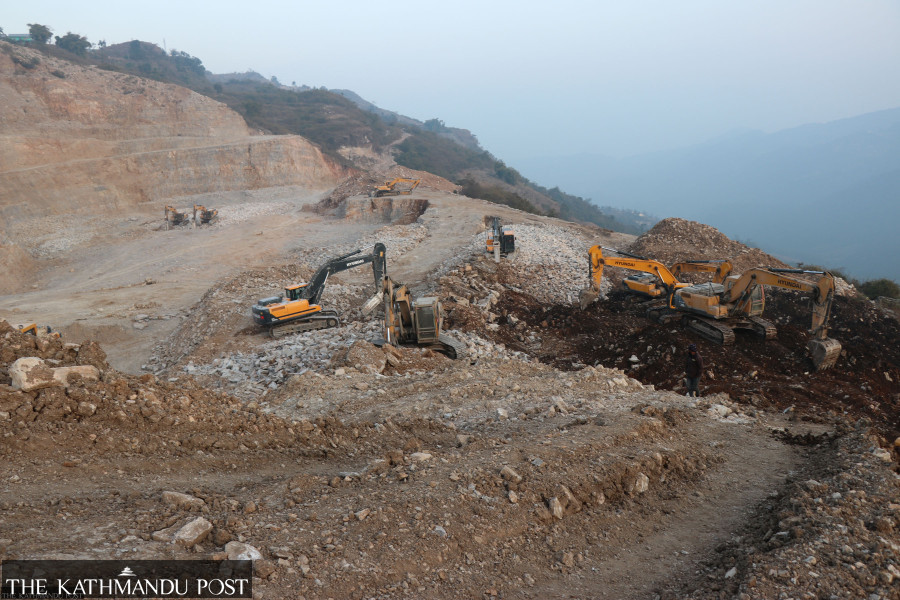Money
FDI commitment to Nepal doubles to Rs61.78 billion
For the first time, Nepal has received an investment commitment of Rs13.10 billion from the Cayman Islands, a British overseas territory in the Caribbean.
Krishana Prasain
Foreign direct investment commitment to Nepal doubled to Rs61.78 billion in the last fiscal year that ended mid-July, bolstered by investment pledged in the service sector.
Officials attribute the rise mainly to Nepal's third investment summit in April. Although top Nepali officials expected investment commitments in billions of rupees during the summit, global investors, including the Nepali private sector, responded lukewarmly.
In the last fiscal year, pledges have been made for 402 projects.
Nearly half of these pledges came from China.
According to the Department of Industry, the FDI commitment from China amounted to Rs23.91 billion for 275 projects, which is 44.33 percent of the total pledges that Nepal has received.
After China, India remains second in making pledges. Investors from the southern neighbour have pledged Rs3.05 billion for 22 projects, which is 20.86 percent of the total pledges made.
Speaking during the third Nepal Investment Summit in Nepal’s capital, Kathmandu, in April, Luo Zhaohui, the chairman of the China International Development Cooperation Agency (CIDCA), said the Chinese government would continue to attach great importance to direct and indirect investment in Nepal to implement the Trans-Himalaya dimensional connectivity, which is the highest priority for countries.
Nara Bahadur Thapa, former executive director of Nepal Rastra Bank, the central bank, said that since China is a fast-growing economy with enough investable money, it is eying Nepal, too.
But insiders say that the high intensity of rivalry between China and India means they would make tall promises, but history has shown that they have never been realised.
According to insiders, priorities keep changing with the changes in the government.
“If there were no border disputes between China and India in 2017, it would have benefited Nepal greatly, particularly in the hydropower sector,” said Thapa.
“After the disputes, India's strategy was clear. It refused to buy electricity from Nepal if any Chinese component was involved,” Thapa said.
Most of Nepal's projects are built by Chinese contractors. Evidence shows that Chinese bids are often so low, sometimes even below the minimum bid amounts, that they win the projects but struggle to deliver later.
For example, Chinese contractors bid almost Rs1 billion below the minimum bid amount for the Gautam Buddha International Airport in Bhairahawa. The four-year project, however, was completed in eight years.
There are issues in the cement industry as well. In Nepal, most of the cement factories have Chinese investment. According to insiders, the producers are struggling to export their products to India.
“India's economy is growing and it is increasingly producing goods on its own for export. Nepal remains a key market,” said Thapa.
Despite this, India has built many hydropower projects in Nepal to export electricity.
“We need a comprehensive analysis to understand how geopolitics will impact Nepal’s existing and upcoming projects,” said Thapa.
Multinationals first ventured into the Nepali market from India during the 1990s, when a multi-party democratic system was restored in Nepal. But since then, Nepal has not seen much interest from big foreign companies.
The government has yet to release the statistics of the actual FDI in the last fiscal year. However, during the first 11 months, ending mid-June, the actual FDI amounted to Rs8.16 billion, according to Nepal Rastra Bank.
Besides India and China, Nepal received a high FDI commitment from South Korea worth Rs12.96 billion for 16 projects. Interestingly, the Cayman Islands, a group and overseas territory of the United Kingdom in the Caribbean Sea, has pledged to invest Rs13.10 billion in a single project in Nepal.
Nepal received an FDI commitment from the Cayman Islands for the first time.
“The commitment has come for a hydropower project,” said an official at the Industry Department without elaborating further.
Nepal has not received any FDI commitment from the UK in the last fiscal year.
Similarly, Nepal received an FDI commitment of Rs1.75 billion for 19 projects from the US in the last fiscal year.
The US has been raising the issue of proper Intellectual Property Rights law to attract investment during the Trade and Investment Framework Agreement meeting, but the government has failed to do so.
In the last fiscal year, Nepal received Rs3.04 billion in FDI commitments from Australia for three projects and Rs1.49 billion for four projects from the United Kingdom of Great Britain and Northern Ireland.
“Due to political instability, Nepal has not improved its status to attract FDI,” said Thapa. The government works at a slow pace, which is the key factor in discouraging investors.”
“Unless the pre-approval provision is removed for the Foreign Investment and Technology Transfer Act, foreign investment will not come,” he said. The registration process is also full of hassles.”
In the last fiscal year, Nepal received FDI commitments for 386 projects from small-scale industries, 15 from medium-scale industries, and six from large-scale industries.
The FDI commitment has come largely from the tourism sector, with 197.48 percent of the total commitment; followed by the service sector, 133.33 percent; manufacturing, 46.11 percent; 11.3 percent in communication and information technology; 8.2 percent in agriculture; and 6.1 percent in infrastructure.
In the last fiscal year, the department recommended 2,229 business visas for investors, 1,222 for representatives and 1,007 for dependents.
Investors repatriated Rs10.07 billion in the last fiscal year, while the department collected revenue of Rs3.03 million in service fees.
The department received the FDI commitment of Rs8.11 billion through an automated route.




 9.7°C Kathmandu
9.7°C Kathmandu















